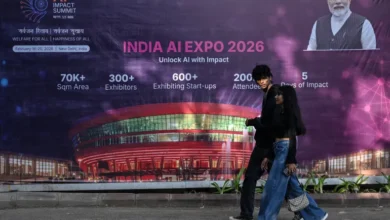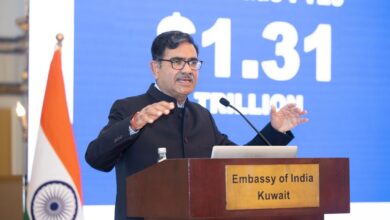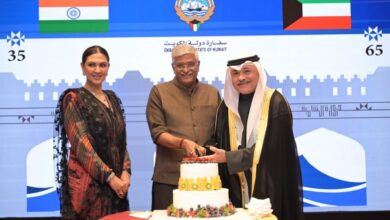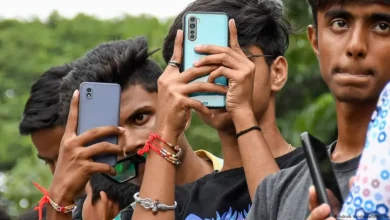The Wedding That Wasn’t; Gen Z’s playful reimagining of tradition
Mock weddings, a growing trend in India and abroad, recreate elaborate ‘shaadi’ rituals purely for entertainment and social media, offering tradition’s spectacle without marriage’s commitment or familial pressures. Sundeep Bhutoria takes the reader through what the writer calls ‘shifting cultural landscapes’.
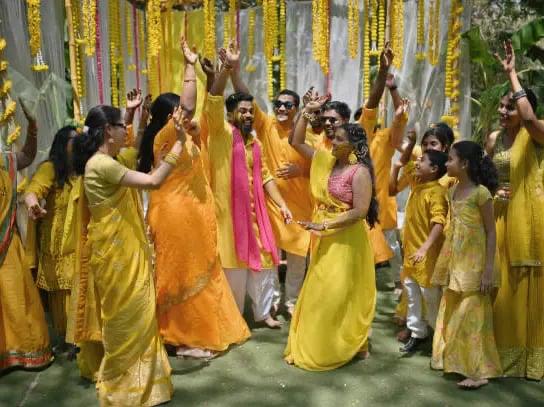
By Sundeep Bhutoria
Special to the Times Kuwait
Last week at The Arts Club in Dubai, over lunch with a friend, we discussed shifting cultural landscapes. She shared a vibrant video: dazzling colors, Bollywood beats, young people in exquisite ethnic wear twirling through varmala ceremonies, tossing petals with cinematic flair. It looked like a wedding.
It felt like a wedding.
But there was no bride, no groom, no priest, no sacred fire — just a curated performance of what a wedding should feel like.
Welcome to Mock weddings. . .
This trend is sweeping India’s metros, global campuses, and expat communities. These shaadi-style parties boast mehndi counters, sangeets, mock baraats, and lavish buffets—but no marriage. What binds them isn’t commitment; it’s content.
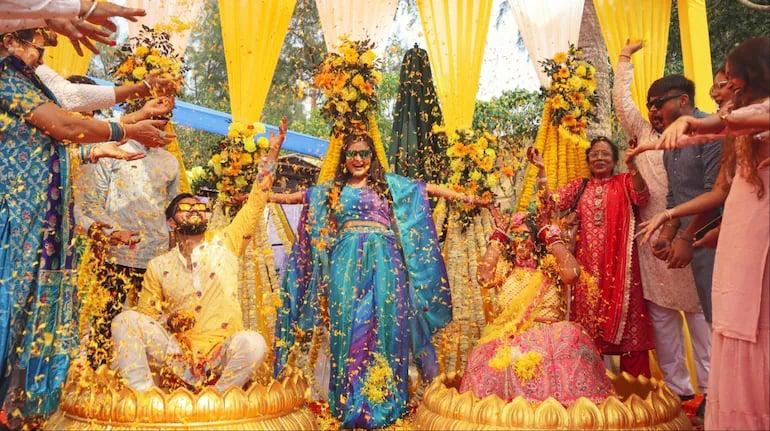
As someone who cherishes Indian weddings—a sacred blend of tradition, modernity, and joy—I felt uneasy at first.
Weddings in India aren’t just private vows; they’re public sacraments, weaving generations, values, and rituals. Seeing them unmoored from meaning stirred discomfort.
But a deeper story emerged — not of parody, but performance. Not derision, but desire.
Not rebellion, but participation
Fake weddings are a flourishing genre. In Delhi, event companies host them regularly, with tickets from ₹500 to ₹3,000. Guests don ethnic finery, sip cocktails, play shaadi games, and create Instagram reels. These events fill college campuses, rooftop bars, and curated lounges—no real couple, no family drama.
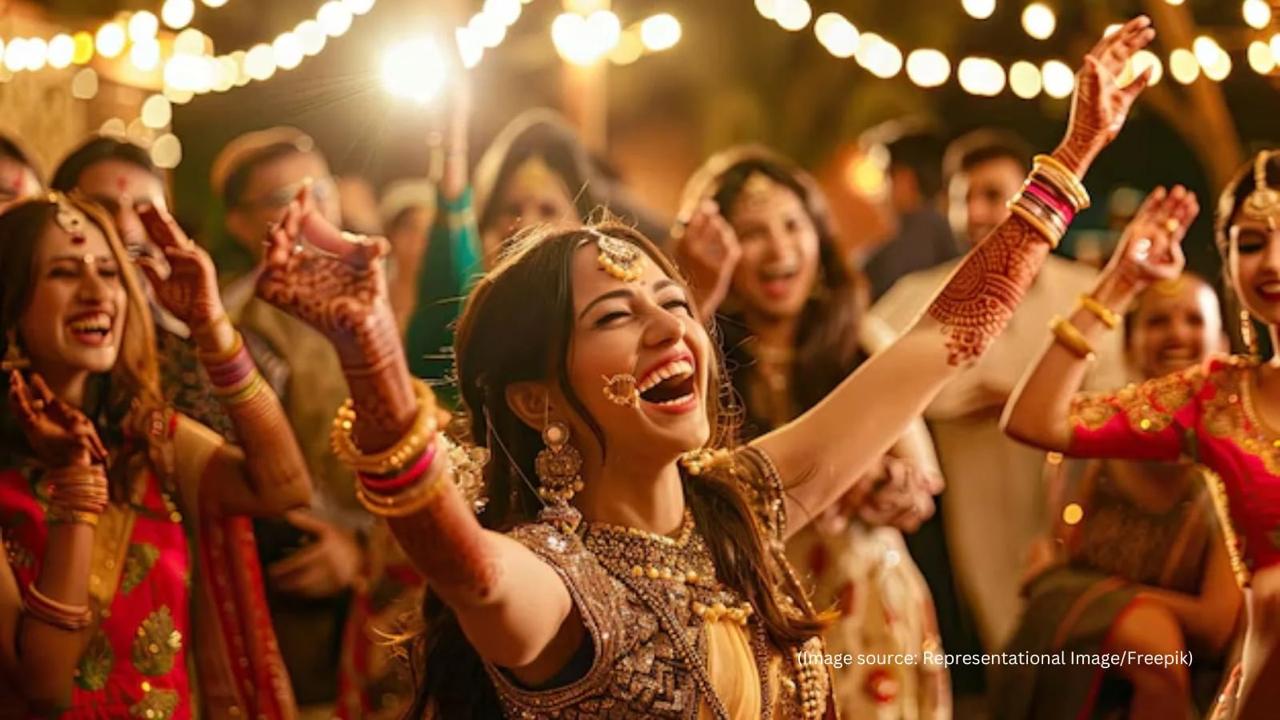
It’s not just India. Cornell University hosted a two-day fake wedding for students. In Dubai, South Asian millennials attended a “farzi sangeet” with gajras and DJs. Luxury hotels like Shangri-La have leaned in, staging mock weddings with Tarun Tahiliani couture and live Sufi music to launch wedding services.
Why now? Why Gen Z?
Indian weddings, with their rituals, clothes, food, and music, are irresistible—a high-voltage celebration of life. For Gen Z far from home, NRIs, or foreigners enamoured by Indian culture, mock weddings offer the magic without the pressure.
But there’s more. . .
Today’s youth navigate shifting values, with rising divorce rates, gender conflicts, and disillusionment challenging marriage’s sanctity. Commitment feels fraught, but the wedding’s performance—theatre, fantasy, choreography — retains allure.
These weddings aren’t mockery; they’re a mirror, reflecting a generation craving connection but fearing permanence, seeking tradition’s symbols while rewriting its substance.
An ecosystem of spectacle . . .
Event companies fuel this trend, offering curated experiences with flowers, mehndi artists, and shaadi games. Venues incentivize ethnic wear with free cocktails. For Instagram natives, it’s a dream—perfect for that lehenga or kundan earrings worn once.
A Noida “shaadi rave” attendee gushed: “Dhol players, a fake bride and groom, a haldi station with marigolds, a choreographed sangeet—no relatives prying, just fun.” Her joy was infectious.
What’s lost in the script?
Yet I wonder what’s lost when ritual sheds meaning. Weddings were once communal memories—a grandmother’s lullaby, a father’s tears, a cousin’s garba lesson. They were stories, not scripts for reels.
What happens when commitment becomes cosplay? Will the mock wedding economy sustain traditional artisans, mehfil singers, or handloom weavers?
Will an Instagram-fueled party honor the poetry of the phera?
Intention anchors reinvention
I’m no moralist. Indian culture — vast, alive — thrives on reinvention, from hybrid cuisines to eco-friendly rituals. But reinvention demands intention. Without sincerity, what anchors our joy?
I’m not against such weddings. If they foster connection, cultural appreciation, or joyful experimentation, they have value. But if they reduce centuries of emotion to hashtags and headpieces, we must ask: What are we celebrating? Why? Or is this spectacle a reflection of our collective state of mind?
(Sundeep Bhutoria is a social and cultural activist known for promoting Indian arts and culture across the world. He has been involved in various initiatives, including Project Pronam, which supports elderly citizens, and Lockdown Live, which provided financial assistance to folk artists during the pandemic.)
Follow The Times Kuwait on X, Instagram and Facebook for the latest news updates-







